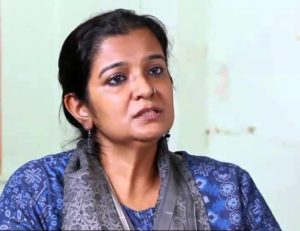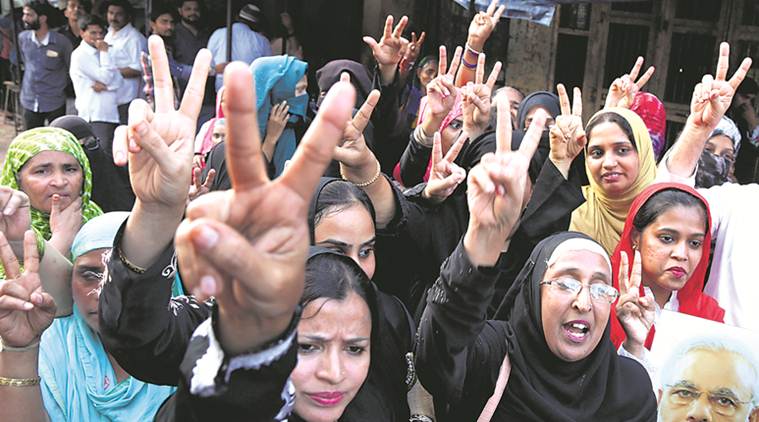Rethink the Triple Talaq Bill, 2018
The Triple Talaq Bill has flaws that need to be addressed to fulfil its purpose.

T
his Monsoon Session of the Parliament, the Muslim Women (Protection of Rights on Marriage) Bill is likely to be tabled again. It was tabled and passed in the Lok Sabha, in the last Winter Session, but the Bill was unable to cross the threshold of the Rajya Sabha. This Bill follows the Supreme Court judgement in the case of Shayara Bano v. Union of India, which declared instant triple talaq or talaq-e-biddat constitutionally invalid and illegal. The Bill makes all declaration of talaq, including in written or electronic form, to be “void and illegal”. It also makes the practice, a cognisable and non-bailable offence, which will be punished with imprisonment of upto three years and fine.
Although the Bill follows the verdict of the Supreme Court judgement, it has certain flaws and has been criticised on many fronts. The statement of objects and reasons of the Bill states that this legislation aims to ensure “gender justice and gender equality of Muslim women” and to help protect their fundamental rights of non-discrimination and empowerment. This legislation however, fails to do so, since the remedy that is provided, that is, the subsistence allowance is not an adequate remedy.
An inherent flaw that remains in this remedy is how the husband will provide the allowance when he is behind bars. Moreover, in present times, an allowance cannot be the sole means of compensation, as a lot more than money is required to survive. The legislature can include this practice under the Protection of Women from Domestic Violence Act, 2005, which is applicable to all women, irrespective of religion. This statute provides numerous recourses to a woman which include right to residence in matrimonial home, protection against violence etc., and this would highly strengthen the position of married Muslim women.
“The Bill also fails to provide a method of divorce for the wife, and thus, does not put the husband and wife on an equal footing. The legislature should provide for an equitable means of divorce to both parties, in order to bring Muslim women at par with Muslim men.”
 This Bill, by making the pronouncement of triple talaq a cognisable and non-bailable offence, puts Muslim men in a difficult position. This provision allows a third person to interfere in the marriage, and allows the police to conduct an investigation and arrest the husband without the order of a magistrate, thus making it an arbitrary procedure. Instead of making the practice a non-bailable and cognisable offence, it should be made a bailable and non-cognisable offence, as it will allow only the aggrieved party, the wife, to file a complaint. This would reduce the arbitrary nature of the procedure while maintaining its deterrent effect.
This Bill, by making the pronouncement of triple talaq a cognisable and non-bailable offence, puts Muslim men in a difficult position. This provision allows a third person to interfere in the marriage, and allows the police to conduct an investigation and arrest the husband without the order of a magistrate, thus making it an arbitrary procedure. Instead of making the practice a non-bailable and cognisable offence, it should be made a bailable and non-cognisable offence, as it will allow only the aggrieved party, the wife, to file a complaint. This would reduce the arbitrary nature of the procedure while maintaining its deterrent effect.
Under Islamic law, a marriage is a civil contract, and hence the criminalisation of an act related to a civil contract seems illogical. The criminalisation of the practice can also be criticised on the ground that the criminal prosecution of the husband will eventually end any means of reconciliation.
Lastly, questions can also be raised on the drafting procedure of the Bill, as no Muslim organisation such as the Bharatiya Mahila Muslim Andolan (BMMA) or the All India Muslim Women Personal Law Board were consulted during the drafting.
“Noorjehan Safia Niaz, the co-founder of the Bharatiya Mahila Muslim Andolan is of the view that “an inclusive approach by the Government would have helped, especially in preventing the blockade that the Bill is currently facing in the Rajya Sabha”.
Moreover, the Bill was introduced and passed in the Lok Sabha on the very same day, and hence, no substantive legislative deliberation took place.
The Bill should, in accordance with the demands of the Opposition, be referred to a Parliamentary Committee and also be made open for comments and suggestions from the public, so as to understand the opinions of all stakeholders and scrutinise the areas that require attention and amendment. Niaz also stated that the Bill requires a more comprehensive approach, one that addresses all issues that plague Muslim women, not just triple talaq. The BMMA submitted a draft addressing all the issues, including polygamy and nikah halala, to the Government. She mentions that the draft is an outcome of eight years of consultation with inputs from thousands of women, and hence provides a comprehensive approach.
The aim of this Bill is to liberate Muslim women, and this legislation is a step in that effect but for the Bill to fulfil its legal and constitutional purpose, and establish an age of equality and gender justice, it needs to be strengthened and the loopholes in the law need to be plugged; however, as Niaz tells Delhi Post, “A legislation on this issue is urgently required, hence, any Bill is welcome at this point of time.”
